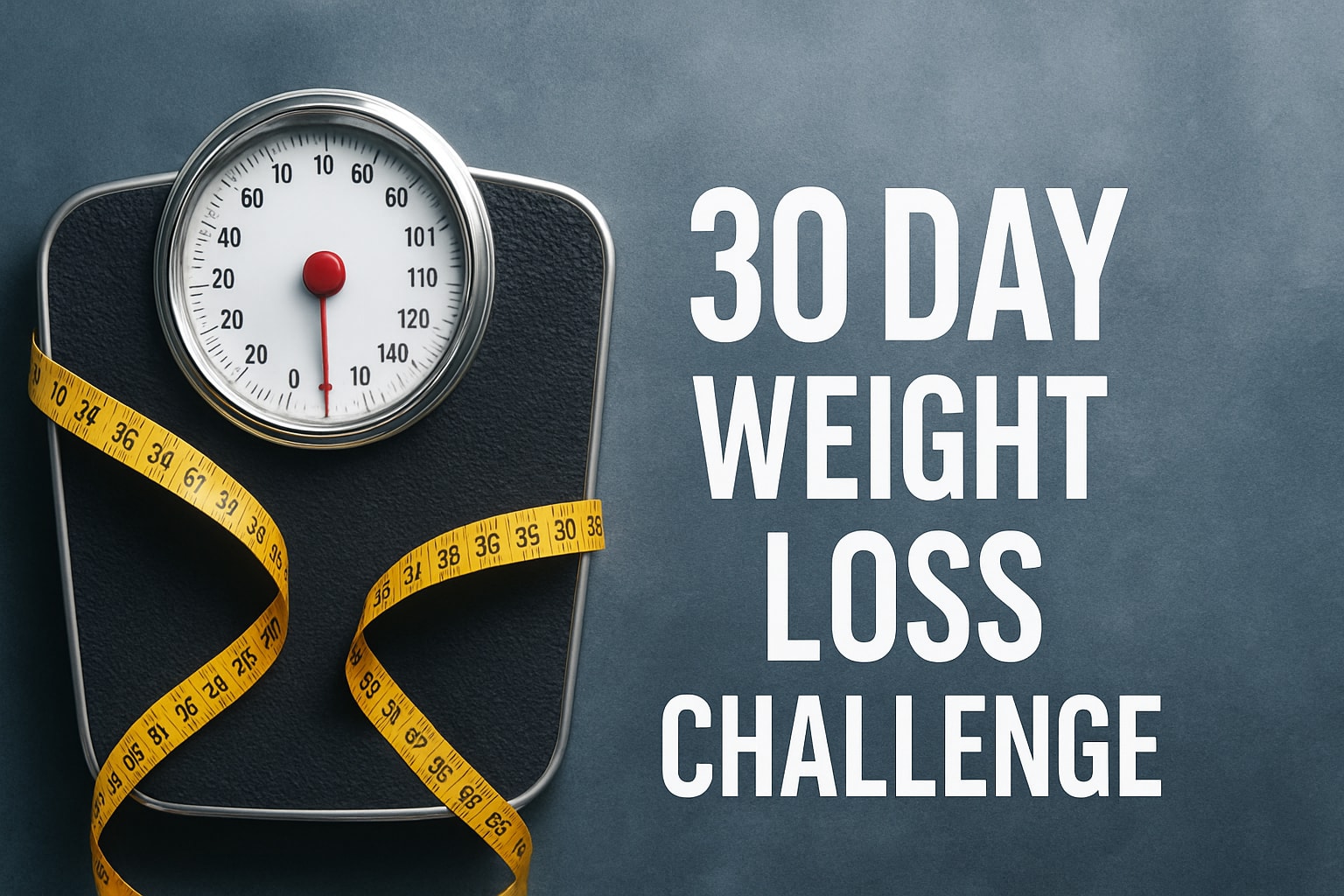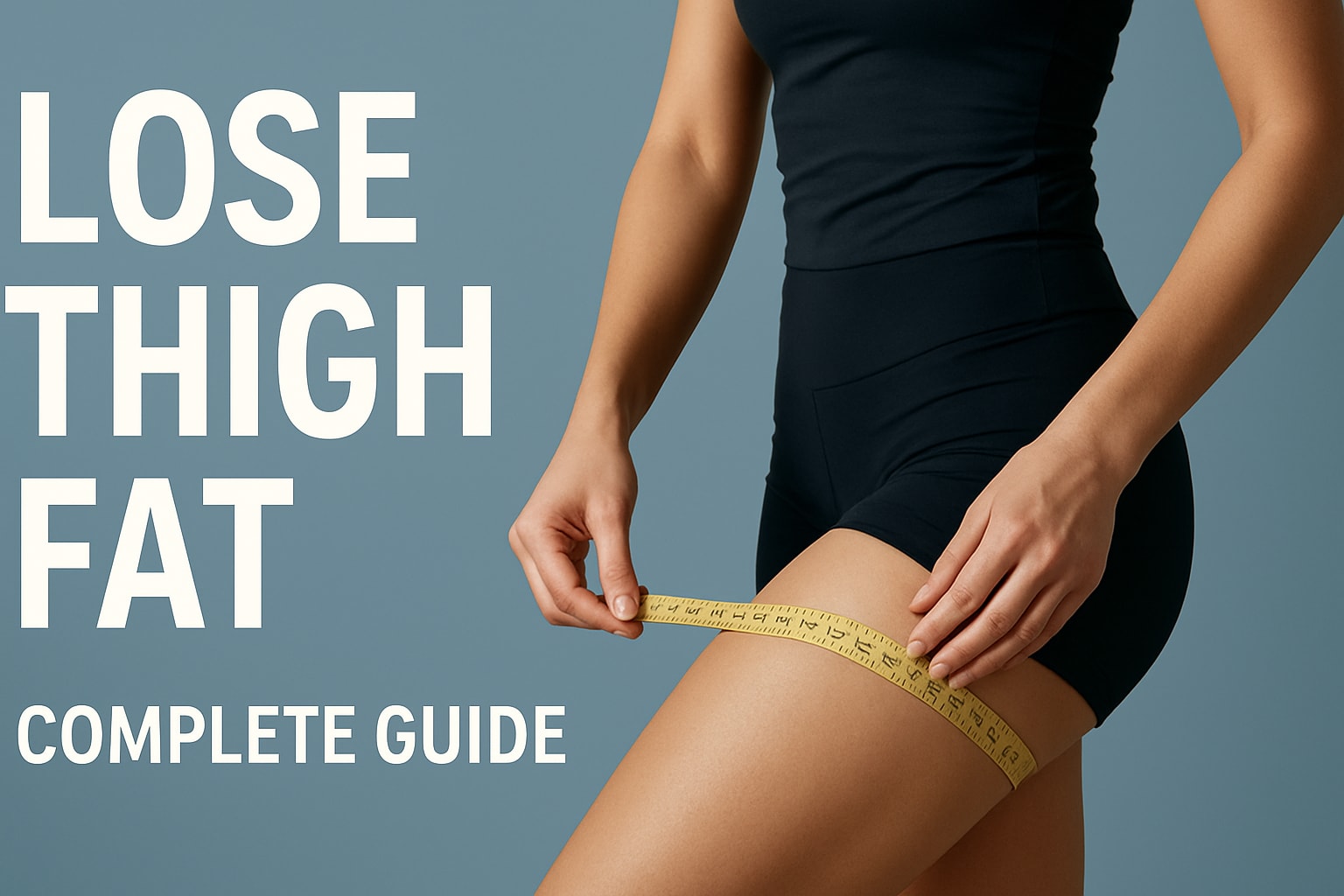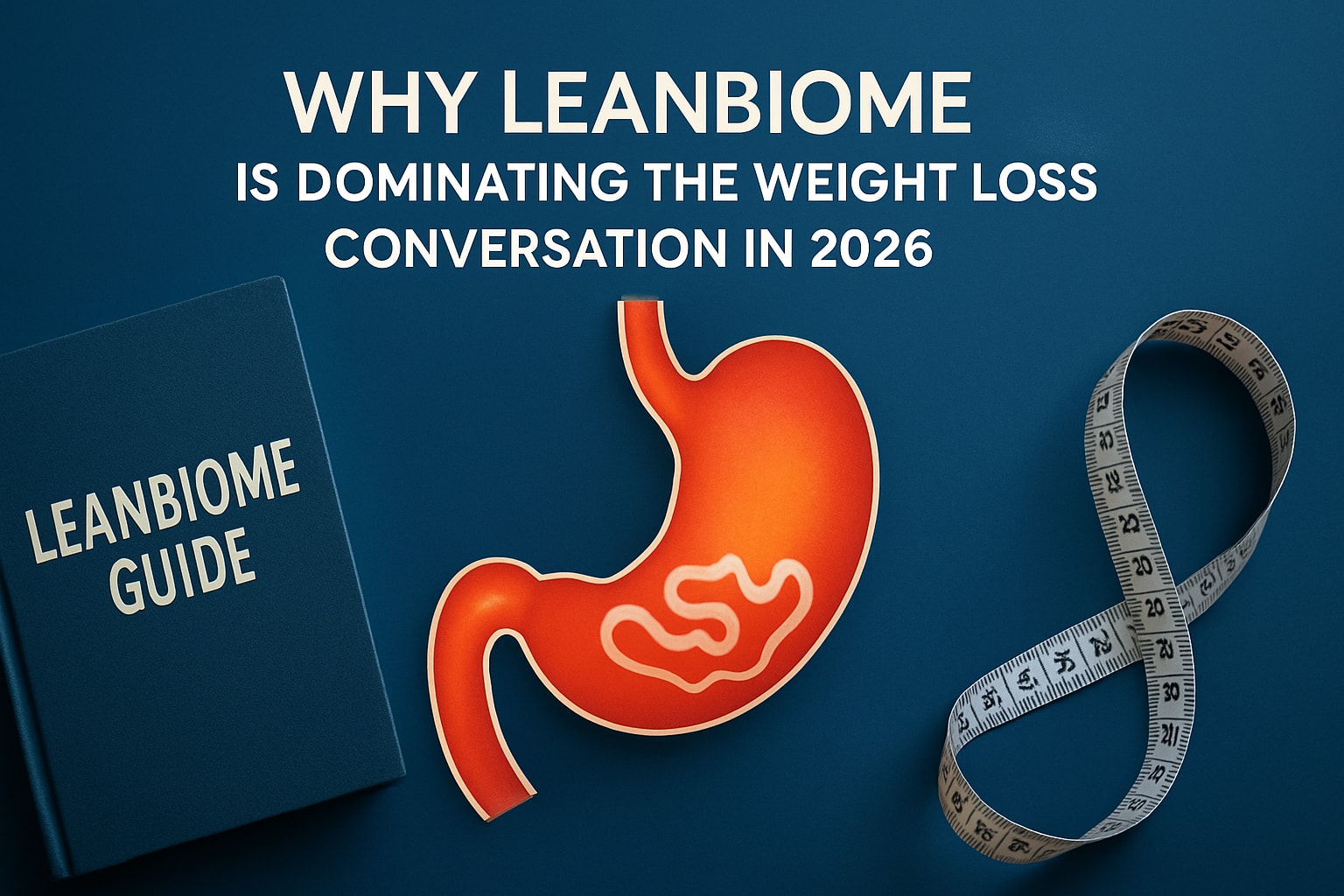Imagine achieving lasting weight loss by harnessing the power of your mind. Instead of restrictive diets or endless willpower battles, self hypnosis for weight loss offers a fresh perspective. This guide reveals how you can transform your habits and mindset in 2025, breaking old cycles and building a healthier relationship with food. You will discover the science behind self-hypnosis, step-by-step techniques, inspiring real-life stories, and expert strategies for lasting results. Ready to unlock a new approach to weight loss? Let’s begin your transformation.
The Science of Self-Hypnosis and Weight Loss
Curious how self hypnosis for weight loss actually works? Instead of relying on willpower alone, this approach leverages your brain’s natural learning pathways. Let’s break down the science, debunk common myths, and reveal how the subconscious mind shapes your eating habits and weight management success.

Understanding Self-Hypnosis: Myths vs. Facts
Self hypnosis for weight loss is often misunderstood. Many people assume it is the same as stage hypnosis, where someone clucks like a chicken on cue, but in reality, it is a self-directed process that helps you access a state of focused relaxation.
Unlike guided hypnotherapy, which involves a practitioner, self hypnosis for weight loss puts you in control. You enter a relaxed state and use positive suggestions to influence your subconscious mind. This is different from entertainment hypnosis, which relies on suggestion and performance.
Common myths include:
- You lose control of your actions.
- Only certain people can be hypnotized.
- Hypnosis is a form of sleep.
In truth, scientific research shows that anyone can learn self hypnosis for weight loss with practice. You remain fully aware and in control throughout the process. For a detailed breakdown of these misconceptions and the real science, see Hypnosis for Weight Loss Explained.
Neuroscience reveals that habits are formed through repeated neural pathways. If you routinely reach for snacks when stressed, your brain wires this response into a habit loop. Self hypnosis for weight loss helps you access the subconscious, where these patterns live, so you can rewire them.
Studies support this approach. A 2018 randomized controlled trial found that participants practicing self hypnosis for weight loss experienced improved self-control and notable weight loss compared to controls. A 2020 review linked hypnotherapy to lower BMI and beneficial hormone changes that affect appetite.
If you are skeptical, you are not alone. However, evidence continues to mount that self hypnosis for weight loss is a valid, science-backed tool for changing eating behaviors by working directly with the subconscious mind.
Curious about more ways self-hypnosis can transform your eating habits? Explore our articles on Transforming Eating Habits with Self-Hypnosis and discover Common Misconceptions About Self-Hypnosis to deepen your understanding.
How Self-Hypnosis Supports Weight Loss Goals
Emotional eating is a major challenge for many people. According to recent research, up to 60% of adults report eating in response to stress, boredom, or emotional discomfort. These triggers are often rooted in the subconscious and can sabotage even the best weight loss intentions.
Self hypnosis for weight loss addresses these psychological barriers directly. By providing positive suggestions and visualizations, you can boost self-control, reduce cravings, and increase motivation. This process helps you manage stress more effectively, break the cycle of emotional eating, and build resilience.
Here are some benefits of self hypnosis for weight loss:
- Reduces stress-induced cravings.
- Increases confidence in making healthy choices.
- Helps heal emotional wounds that drive overeating.
- Supports long-term mindset shifts.
The mind-body connection is powerful. When you change your mindset, you change the signals your body receives about hunger, satisfaction, and self-worth. Self hypnosis for weight loss allows you to rewrite the internal scripts that lead to destructive patterns.
Importantly, this technique works best when combined with traditional healthy habits. Self hypnosis for weight loss does not replace balanced eating or regular movement—it complements them by addressing the root causes of unhealthy behaviors, not just the symptoms.
Want to reinforce your mindset shifts? Check out our guide to Powerful Affirmations for Weight Loss and learn how to integrate self-hypnosis into your daily routine.
If you are ready to take the next step, discover how our tailored programs at Oneleaf Weight Loss can support your journey with neuroscience-based tools and a supportive community.
Transforming Your Mindset: Why It Matters for Weight Loss
Shifting your mindset is the foundation of any successful self hypnosis for weight loss journey. Many people approach weight loss with the belief that willpower and discipline alone will carry them to their goals, but research tells a different story. The way you think about food, your body, and your own abilities can dramatically change your long-term results.
The Power of Mindset in Weight Management
Mindset is more than just positive thinking. It shapes your habits, choices, and resilience. When you believe, “I always fail at diets,” you reinforce a self-fulfilling prophecy. These limiting beliefs can sabotage even the best diet or exercise plan. Common limiting beliefs include:
- “I can’t control my cravings.”
- “Healthy eating is too hard for me.”
- “I’ll never look the way I want.”
Building self-efficacy, or the belief in your ability to succeed, is critical. Studies show that people with a positive mindset not only lose more weight but are more likely to keep it off for good. By focusing on progress rather than perfection, you can turn setbacks into learning moments, not reasons to quit.
Perfectionism and body image pressures, fueled by social media and cultural ideals, often lead to discouragement. Instead, shifting your focus to self-acceptance and gradual improvement helps you stay motivated. As discussed in this overview of hypnosis for weight loss, mindset work is just as important as nutrition when it comes to achieving lasting results.
For more insights, see How to Stop Self-Sabotage, Building Healthy Habits That Last, and The Power of Self-Talk in Weight Loss.
Healing Emotional Triggers and Building Resilience
Emotional eating is a major roadblock in self hypnosis for weight loss. Stress, boredom, loneliness, and past trauma can all trigger overeating. Common emotional triggers include:
- Work or relationship stress
- Feelings of boredom or emptiness
- Childhood experiences with food
- Past emotional wounds
Self hypnosis for weight loss offers a unique way to address these deep-seated triggers. By accessing the subconscious, you can heal old patterns and foster self-compassion. This internal shift empowers you to respond to emotions with healthier behaviors instead of reaching for food.
Experts agree that integrating emotional healing with behavioral change is essential. Practicing self-compassion, rather than self-criticism, leads to greater resilience and motivation. Real-life examples show that individuals who use self hypnosis for weight loss often overcome emotional eating, build confidence, and maintain results despite challenges.
Explore more on Overcoming Emotional Eating and access supportive tools at Oneleaf’s weight loss program. Consistent mindset work, paired with self hypnosis for weight loss, transforms your relationship with food and yourself.
Step-by-Step Guide: How to Practice Self-Hypnosis for Weight Loss
Ready to make self hypnosis for weight loss part of your daily routine? This step-by-step guide will walk you through proven strategies to prepare your mind and environment, master each stage of self-hypnosis, and integrate the practice for lasting transformation. Whether you are new to self hypnosis for weight loss or seeking to deepen your results, these actionable steps will help you build confidence, consistency, and real progress.

Preparing for Self-Hypnosis: Setting the Stage
Creating the right environment is the foundation for effective self hypnosis for weight loss. Choose a quiet space where you feel safe and free from distractions. Many find that early mornings or evenings work best, but the ideal time is when you know you will be undisturbed.
Set a clear intention before each session. Ask yourself, “What do I want to shift in my relationship with food today?” This focus could be reducing cravings, building self-control, or simply feeling more at ease around eating. Writing your intentions in a dedicated journal helps reinforce your commitment and provides a record of your journey. If you are curious about how journaling supports mindset change, explore this guide to mindful journaling.
Start each session with a calming ritual. Deep breathing, gentle stretching, or a few moments of gratitude can prepare your mind and body for change. This simple pre-hypnosis practice signals to your subconscious that it is time to focus on your goals.
Keep your journal nearby to note any thoughts, emotions, or triggers that arise. Over time, you will notice patterns, making it easier to use self hypnosis for weight loss to address underlying challenges. For more on setting up your environment for success, read how to create a calm space for self-care.
If you are using digital support, apps like Oneleaf offer guided audio sessions designed for weight loss and mindset change, making it easier to get started and stay consistent.
Self-Hypnosis Techniques: A Chronological Approach
Once your environment is set, follow these steps for effective self hypnosis for weight loss:
Relaxation: Begin by sitting or lying comfortably. Close your eyes and take slow, deep breaths. Progressively relax each muscle group, starting from your toes and moving upward.
Induction: Use a countdown (for example, count backward from 10) or imagine yourself in a peaceful place. This helps shift your mind into a receptive, focused state.
Deepening: Visualize descending a staircase or floating gently. Use affirmations such as “With every breath, I go deeper into relaxation.” This phase makes your subconscious more open to positive change.
Suggestion: Now, introduce specific, positive suggestions related to your weight loss goals. For instance, say to yourself, “I am in control of my eating habits,” or “I naturally choose nourishing foods.” Research, including a self-hypnosis and weight loss study, shows that tailored suggestions can support measurable progress in weight management.
Visualization: Picture yourself making healthy choices, feeling confident, and enjoying movement. Imagine the emotions and sensations of success, reinforcing new habits.
Reorientation: When you are ready, count up to five or gently wiggle your fingers and toes. Open your eyes, stretch, and reflect on the experience. Write down any insights or intentions for the next session.
Here are some sample affirmations you can use:
- “I honor my body by eating mindfully.”
- “Cravings pass, and I remain in control.”
- “Every day, I move closer to my goals.”
If you are just starting out, consistency matters more than perfection. Short, daily sessions are more effective than occasional long ones. For more on building new habits, see this article on habit stacking.
Need extra guidance? The Oneleaf app provides step-by-step audio sessions, progress tracking, and access to a supportive community. Their neuroscience-based approach is designed to help you develop mindful eating habits and reduce emotional triggers.
Integrating Self-Hypnosis Into Your Daily Routine
For self hypnosis for weight loss to deliver lasting results, integrate it into your daily life. Aim to practice 5 to 7 days a week, with each session lasting 10 to 20 minutes. Set reminders on your phone or use habit trackers to stay accountable.
Keep tracking your progress in your journal. Note any shifts in your mindset, changes in cravings, or new insights about your eating patterns. Apps like Oneleaf make this process seamless, offering built-in progress tools and reminders to help you stay motivated.
Combine self hypnosis for weight loss with other healthy habits such as mindful eating, regular movement, and stress management. If you hit a plateau, don’t get discouraged. Adjust your suggestions, try a new visualization, or explore ways to overcome motivation slumps.
Troubleshooting common challenges is part of the journey. If you feel stuck, revisit your intentions, seek support from the Oneleaf community, or review expert tips for dealing with setbacks.
Remember, the most important factor in self hypnosis for weight loss is consistency. Each session builds new neural pathways, making healthy choices feel more natural over time. With daily practice and the right tools, you can transform not just your habits but your mindset for good.
Real-Life Success Stories: Self-Hypnosis in Action
Real stories can be the most powerful motivator when pursuing self hypnosis for weight loss. Seeing how others have changed their lives offers both inspiration and practical lessons for your own journey.

Case Studies and Testimonials
Many individuals have experienced remarkable results with self hypnosis for weight loss. Take the example of Maria, a busy mother who struggled with late-night snacking and emotional eating. Through daily self hypnosis sessions, she learned to recognize her triggers and replace old habits with mindful choices. Within a few months, not only did she lose weight, but she also reported feeling calmer and more in control.
Another success story comes from Alex, who had tried countless diets with little success. By focusing on self hypnosis for weight loss, Alex reframed his relationship with food. He began visualizing himself making healthy decisions, and over time, his cravings for sugary snacks diminished significantly. Alex credits his progress to the consistency of his self hypnosis practice and the supportive resources he found on Oneleaf’s Journal.
A 2018 study found that participants using self hypnosis reported improved self-control and a higher quality of life, supporting these real-world observations. For more insights into the science behind these stories, see the Hypnotherapy's impact on weight loss review, which highlights the effectiveness of self-help strategies like hypnosis.
Community support also plays a vital role. Many users in the Oneleaf Health Journal share tips, setbacks, and victories, creating a sense of accountability. If you are ready to start your journey, explore practical resources and guided sessions at Oneleaf Weight Loss App.
Lessons Learned and Common Themes
Through these experiences, several common themes emerge in successful self hypnosis for weight loss journeys. First, patience and persistence are essential. Real change does not happen overnight, but small, consistent steps lead to lasting results.
Resilience is another key factor. Setbacks are part of any transformation, but those who succeed use self hypnosis to reframe challenges as learning opportunities. Self-compassion is crucial, helping individuals recover quickly from slip-ups without guilt or shame.
Personalization matters too. What works for one may not fit another, so adapting self hypnosis techniques is important. As explained in the Oneleaf Journal, tailoring suggestions and visualizations to your unique needs increases effectiveness.
Expert analysis suggests that combining self hypnosis for weight loss with other healthy habits, such as mindful eating and movement, leads to the best outcomes. If progress stalls, revisiting your intentions or joining a supportive community, such as Oneleaf Weight Loss App, can reignite motivation.
To learn more about building resilience and overcoming emotional triggers, explore articles like How to Master Mindful Eating and Breaking the Cycle of Emotional Eating from Oneleaf’s Journal. If you are looking for a supportive environment, consider joining the Oneleaf Weight Loss App community for daily encouragement and expert guidance.
Expert Tips for Maximizing Results with Self-Hypnosis
Unlocking the full benefits of self hypnosis for weight loss requires more than just following a script. Strategic techniques and ongoing adaptation can help you overcome mental barriers, boost motivation, and sustain healthy habits for the long term.
Building Effective Hypnosis Sessions
Personalization is the foundation of effective self hypnosis for weight loss. Start by identifying your unique challenges and goals. Tailor your suggestions to address specific triggers, such as nighttime snacking or emotional eating.
Use sensory-rich visualizations to make each session more impactful. Picture yourself confidently making healthy food choices, or feeling energized after exercise. The more vivid your imagery, the stronger the message to your subconscious mind.
Complement your self hypnosis for weight loss practice with journaling and positive affirmations. Recording your thoughts before and after each session can help reveal patterns and reinforce progress. Try writing or repeating affirmations like “I nourish my body with healthy foods” or “I am in control of my choices.”
If you encounter complex emotional barriers, consider seeking professional guidance. A certified hypnotherapist can help you craft powerful, personalized scripts and address deeper issues.
Digital tools can also enhance your experience. The Oneleaf app offers neuroscience-based, guided self-hypnosis sessions designed for weight loss. Explore their journal articles for tips on overcoming common obstacles, or read this expert guide on hypnotherapy’s effectiveness. For more on using visualization, see this article. Each resource can deepen your understanding and boost your results.
Overcoming Plateaus and Staying Motivated
Sustained success with self hypnosis for weight loss depends on celebrating progress and adapting to new challenges. Recognize small wins, such as resisting a craving or completing a week of sessions. These moments build confidence and reinforce your commitment.
If your progress slows, be flexible. Adjust your approach by updating your suggestions or trying new visualization techniques. This keeps your self hypnosis for weight loss practice fresh and effective.
External influences, like social gatherings or stress, can derail your efforts. Prepare by developing pre-planned strategies, such as using quick relaxation exercises or affirmations before events. The Oneleaf community provides support and accountability, helping you stay focused during tough times.
Joining a supportive group or finding an accountability partner can also make a difference. Explore more strategies in this mindset article, or learn about emotional triggers in this guide.
Remember, lasting change comes from ongoing practice and adaptation. Return regularly to your self hypnosis for weight loss sessions, track your journey, and don’t hesitate to seek help or new resources through Oneleaf’s weight loss program.
Self-Hypnosis vs. Other Weight Loss Methods: What Sets It Apart?
When it comes to achieving lasting weight loss, many people find themselves stuck in a cycle of restrictive diets and intense exercise routines. These traditional methods often rely heavily on willpower, which can be difficult to sustain over time. In contrast, self hypnosis for weight loss offers a unique approach by targeting the subconscious mind, addressing the psychological roots of eating habits and motivation. This section explores how self hypnosis for weight loss compares to other strategies and helps you determine if it is right for you.
Comparing Approaches: Self-Hypnosis, Diets, and Exercise
Traditional diets often focus on calorie restriction and rigid meal plans, while exercise routines emphasize burning calories. These methods can deliver short-term results, but research shows that many people regain lost weight once motivation fades or life gets busy. Self hypnosis for weight loss, however, works by reprogramming the mind to naturally make healthier choices.
Here’s how self hypnosis for weight loss stands apart:
- Addresses Root Causes: Unlike diets that only manage symptoms, self hypnosis for weight loss helps uncover emotional triggers and subconscious patterns that drive overeating.
- Reduces Reliance on Willpower: By changing internal beliefs, you are less likely to feel deprived or struggle with cravings.
- Supports Lasting Change: Studies, including a 2009 review, show that combining hypnotherapy with diet and exercise leads to better long-term results than using diet alone.
- Empowers from Within: Self hypnosis for weight loss fosters self-efficacy, making it easier to sustain progress.
For more on the science behind mind-based change, read How Hypnosis Targets the Root of Emotional Eating.
If you want to explore practical strategies for replacing willpower with mindset change, visit https://weight-loss.oneleafhealth.com/#/.
You may also find Why Diets Fail and the Mindset Solution helpful for understanding the limitations of traditional methods.
Who Should Consider Self-Hypnosis for Weight Loss?
Self hypnosis for weight loss is particularly beneficial for individuals struggling with emotional eating, low motivation, or a history of repeated diet failures. It’s a valuable tool for those who want to build a positive relationship with food and address the subconscious drivers behind their choices.
Consider self hypnosis for weight loss if you:
- Experience stress eating or cravings triggered by emotions
- Have tried multiple diets with little lasting success
- Want to overcome limiting beliefs about your ability to lose weight
- Are ready to address past traumas or emotional wounds linked to eating
For a deeper look at overcoming emotional triggers, read Healing Emotional Eating with Self-Hypnosis.
It’s important to note that self hypnosis for weight loss is not a replacement for medical or therapeutic interventions. If you have a history of eating disorders, severe mental health concerns, or complex trauma, seek guidance from a qualified professional before starting. Integrating self hypnosis for weight loss with support from healthcare providers can offer the most comprehensive path to transformation.
Explore how you can start your journey with https://weight-loss.oneleafhealth.com/#/, or read Building Resilience Through Mindset Change.
For additional support and to see real results, visit https://weight-loss.oneleafhealth.com/#/ and discover how Oneleaf can help you create lasting change.
As you’ve discovered, real change starts with your mindset—not with strict diets or endless willpower. Self-hypnosis lets you address the habits and beliefs that have held you back, helping you build a healthier relationship with food and yourself. If you’re ready to explore a neuroscience-based approach that fits seamlessly into your life, why not take the first step? You can find out how Oneleaf can help you reach your goals by answering a few quick questions tailored to your unique needs. Let’s make healthy choices feel natural this year—Start Quizz

















